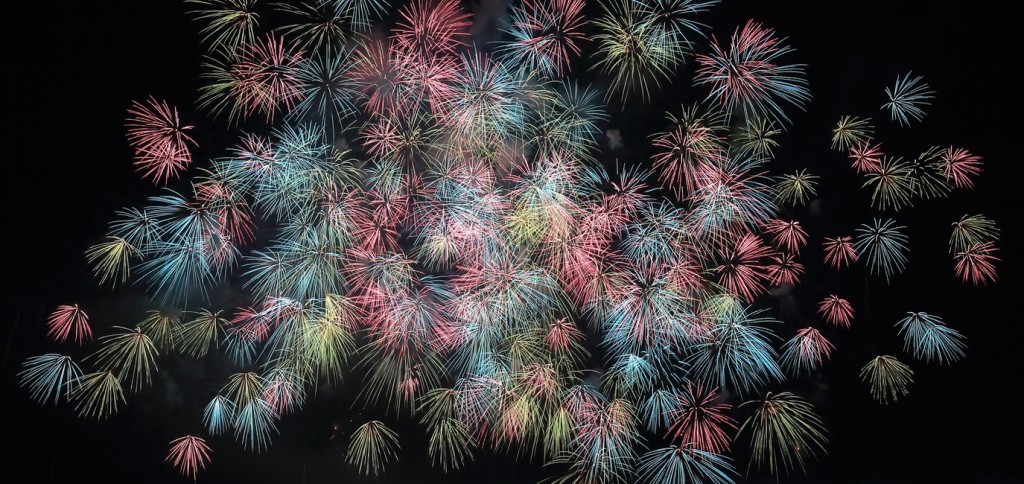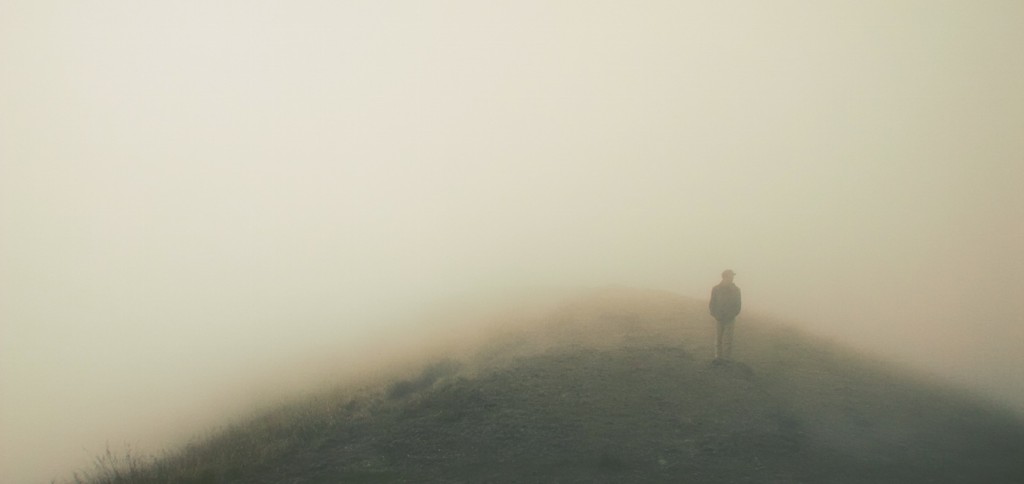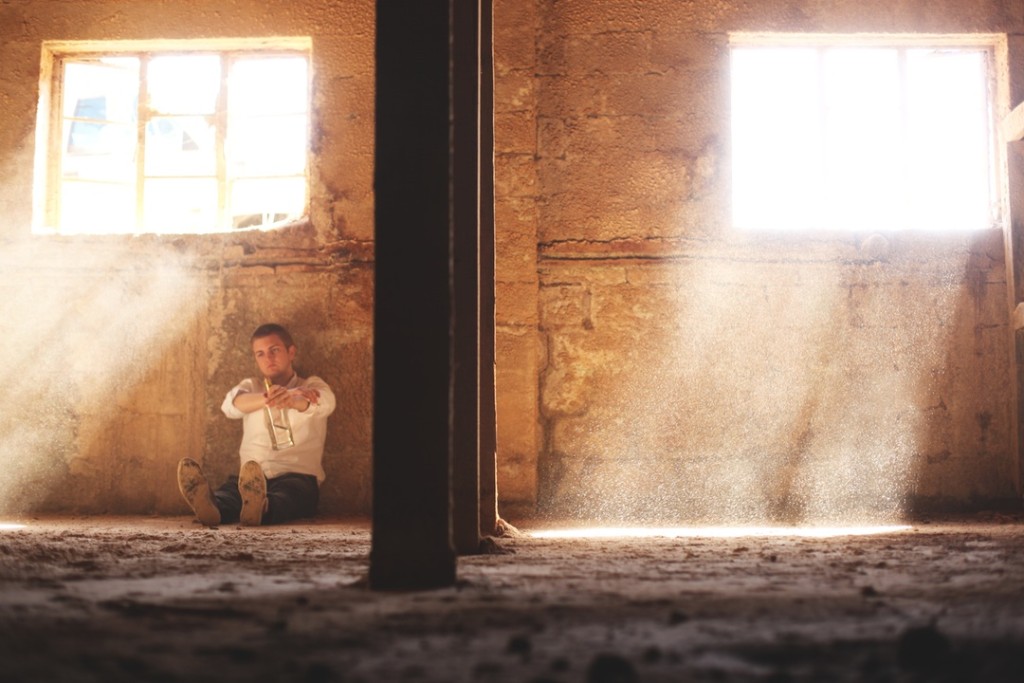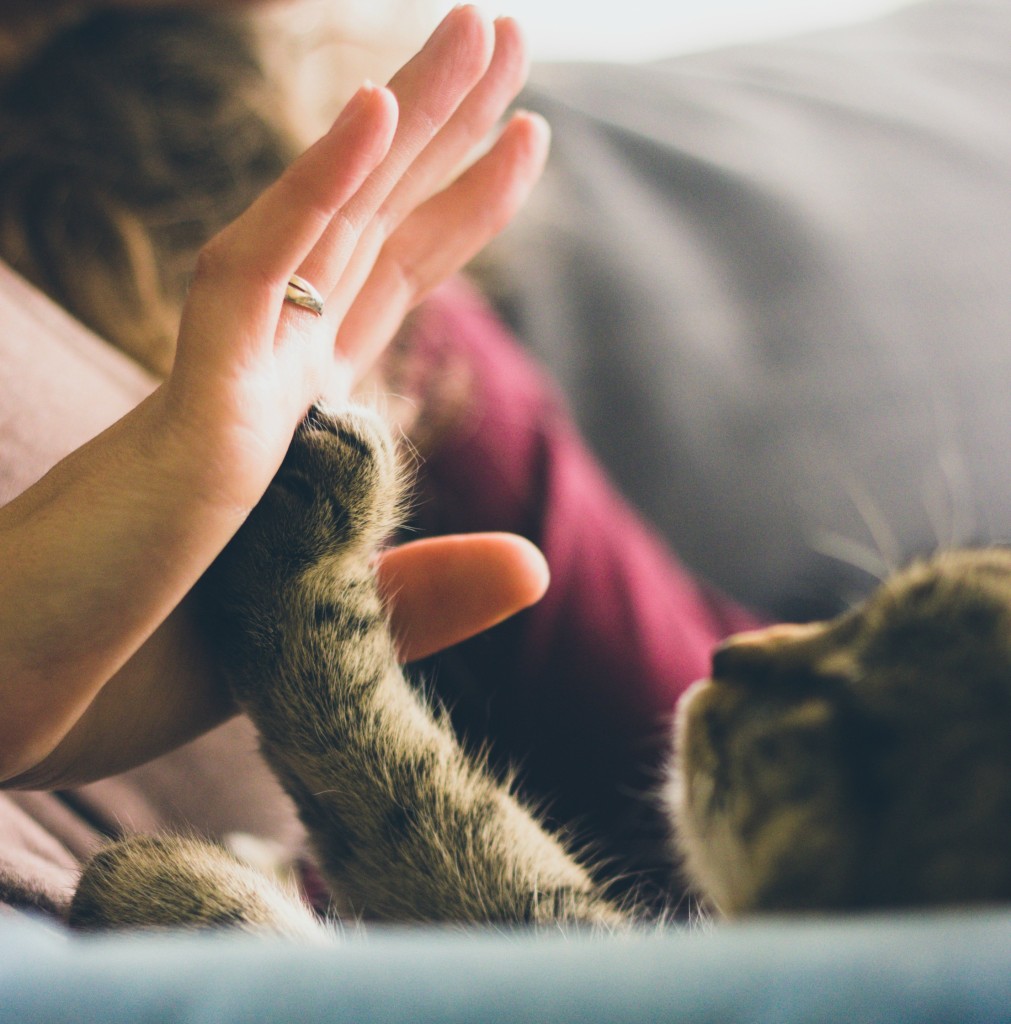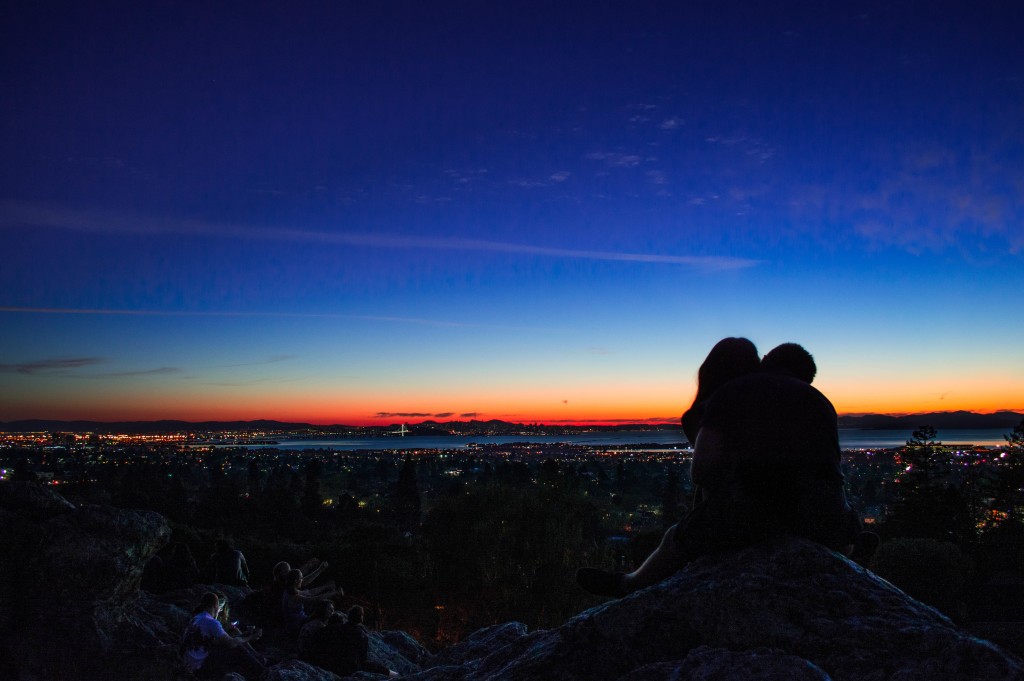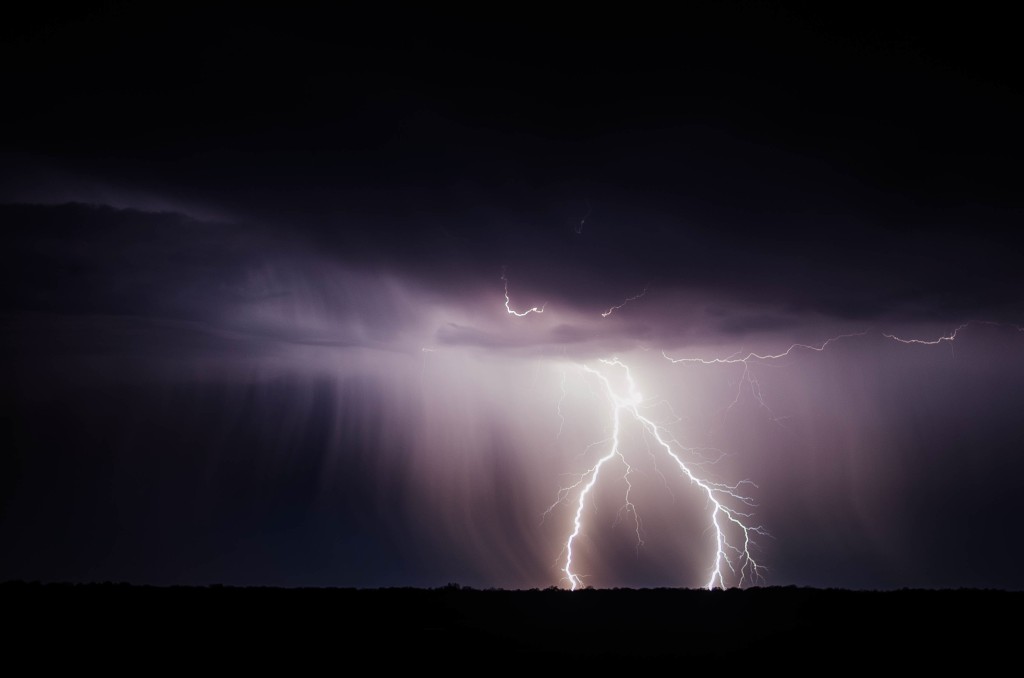I’m pretty sure everyone knows this, but I see hearts or the word “love” every day. Most of the images I post on my Instagram feed, but not all of them. As we start this year, it has me thinking about what that means, that I see love everywhere.
Here’s something else that’s interesting: I only see hearts and love when I’m not looking. You know how people say you find love when you stop looking? For me, that’s literal. What this means to me is love is everywhere. Love is all around us all the time. Love can be found in a planter, in a rock, a piece of bark. Love is not restricted or isolated. Seeing hearts every day reminds me of that. Even in the midst of the worst pain, love is there. Even in the midst of ecstatic bliss, love is there.

I took both of these pictures. I found the blue fuzz on my sock just like this — no arranging from me.
I’m pretty sure I’ve written about this before, but one of the things I love about my spiritual practice is its all-encompassing nature. God is everywhere and everything. There is no separation. God is both love and fear, light and dark. It’s not possible for some things to be God and others not to be because everything, everything is made of God-stuff. God to me is love, so that means love is everywhere and everything. Sometimes it’s hiding though. Sometimes we don’t notice it, but that doesn’t mean love is absent.
As we go into this New Year, it’s my wish that more and more people wake up to the fact love is everywhere. It’s my wish that more and more people see love or hearts every day as a reminder that love is omnipresent, because it is. Seriously, if I see love or hearts all the time, how could it not be? I’m seeing love in a concrete form, but love is even more present in the abstract. It’s the way a mother smiles at her baby. It’s the way a stranger holds open a door. It’s the way a friend shares her vulnerability. It’s the way Komal Ahmad created an app, Feeding Forward, to feed the homeless by allowing companies and event planners to donate their surplus food to those in need within their area.
This New Year I’m asking you to see love. And I promise, the more you see love, the more love there is to see. Because really, love is everywhere.
I dream of a world where we recognize love is everywhere. A world where we constantly see love’s presence. A world where we understand just because we may not see love at the moment doesn’t mean love ceases to exist. A world where we know love is omnipresent.
Another world is not only possible, it’s probable.
On Christmas Eve, I sat around the table with my parents and learned more about where I come from. Not just about their childhoods, but my grandparents’ too. I heard about great-uncles I didn’t know I had, twins I didn’t know existed. The more I heard, the more my eyes started to bug out and a wave of immense gratitude washed over me.
One of the most important things I learned that night is addiction runs deep in my family. Generation after generation, relative after relative. Stories of an alcoholic relation dying after falling down the stairs drunk; a morbidly obese great-grandparent. I couldn’t believe it when I heard about the common thread running through my family’s past. Holy guacamole. It’s a big deal that I’m in recovery for addiction. I’m turning the tide of addiction and dysfunction despite the weight of history pulling me in a different direction. I am a walking miracle.
My friend and neighbor told me a few weeks ago there is often one person in the family who helps heal everyone else. I knew that was me, but didn’t understand how to fulfill that role. After hearing about my family’s history, I understand I’m leading the family in a new direction just by being me. By having the willingness to do something new, to sail uncharted waters. Here I was thinking I got into recovery programs and therapy just so I could live happier and more sanely, and that’s true, but recovery is also so much bigger than me. As soon as one person stops the cycle of addiction and dysfunction by working on themselves in a concerted way, addiction and dysfunction stops. I’m doing something for my family that others could not and that makes me a miracle.
I know this post is about me personally, and my family, but I want to emphasize I am not the only miracle. Everyone is a miracle.
My spiritual teacher says repeatedly that human life is rare and precious. I’ve never understood that. How can human life be rare and precious when there are 7 billion of us? How rare and precious can it be? When I discussed this with my dear friend, he reminded me when we take into account all the other lives — the plants, the animals, the bacteria even — human life really is rare and precious. I think of human life as being expendable much of the time, but when I contemplate there are probably 7 billion bacteria on my pinky finger alone, whoa, being a human really is a miracle.
I think of miracles as walking on water, turning water into wine, or somehow accomplishing the impossible, but really, miracles are so much smaller than that. It’s a miracle that I’m in recovery. It’s a miracle that we’re alive today. It’s a miracle that the impossible can became probable.
I dream of a world where we recognize we are miracles. A world where we practice gratitude for the changes we’re undergoing. A world where we understand miracles aren’t necessarily huge feats, they are also small triumphs.
Another world is not only possible, it’s probable.
I would say the driving question of my life is, “Why?” I want to know the reason behind everything and in particular why things are the way they are, or why they happened. Part of it is because I’m a curious person (I am a journalist after all), but another part is because uncertainty and ambiguity freaks me out. I want to know so I can feel safe. The more information I have, the safer and more secure I feel. As you can imagine, this makes me a bit of a control freak. Control though is basically impossible and this week I received a huge lesson in letting go as well as a reminder that even if I think something is certain, it’s not.
I spoke with a friend about all this and he reminded me that the essential nature of our relationship to Higher Power is one of mystery. He likened it to being on a train where only Higher Power knows the destination. I think I know where we’re going as we crest hills and drop into valleys — I formulate an idea, but then the train keeps moving, so no, I don’t have a clue.
What I also took away from our conversation is the more I try to understand, to know, and to control, the rougher my relationship with Higher Power is, and the rougher things are in the external world. The more I can let go and be OK with the mystery of life, the less I’m affected by curveballs and plans going awry. I’m sure you’ve heard the joke, “When we make plans, God laughs,” because the point is we are very much not in control.
Parades get rained on, people trip down the stairs, jobs are eliminated. Instead of working so hard to be in control, to be certain of outcomes, it’s better for me to trust I’ll be able to handle whatever comes my way. It’s also better for me to be OK with the mystery of the universe because for some things I’ll never get an answer and seeking one I only drive myself crazy.
My spiritual teacher says God has been “creating this unique, colorful world with His various powers. Why He is doing so is known to Him alone; no one else knows it. … It is a fact that human beings with their limited intellect can never understand the secrets of why and how [God] has been creating this universe; their wisdom can never fathom this mystery. … You should think, ‘My little intellect cannot fathom all this – rather let me do one thing, let me establish a relation of sweet love with Him. When this relation of love is established, He will be my own, and I will know His inner secret; I will certainly find the answers to all the questions ‘why’.”
I don’t know if I’ll finally know the answers to all my questions, but it certainly beats what I’ve been doing, which is hypothesizing, ruminating, and just generally overthinking. I still want to know why about everything, but what I’m coming to accept is my limited intellect is just that: limited. What helps me with the limitation is realizing life is a mystery and will remain a mystery. People are mysteries. Certain occurrences are mysteries. I can’t know everything the moment I want to, I just can’t, so the best I can do is let go and keep developing a loving relationship with myself and with my Higher Power. And maybe one day I’ll eventually get the answers I seek.
I dream of a world where we realize life is mysterious and we allow it to be so. A world where we’re open to possibilities and uncertainty because we realize we can still be safe in the face of ambiguity. A world where we work on loving ourselves and the universe because that’s all we can do.
Another world is not only possible, it’s probable.
Sometimes I get in a nihilistic mood and think it doesn’t really matter that I’m alive, that I exist. In the grand scheme of things, I’m a speck, a peon, a flash in the pan of life. Furthermore, I think of myself as expendable and exchangeable in the sense that if I wasn’t here, someone else would accomplish what is required of me; that the universe would work through someone else.
The other day though, I read something in Richard Tarnas‘ book Cosmos and Psyche that had me rethink my perspective. He posits two ways of grappling with the universe and uses the analogy of two suitors to explain them. In the first approach, the suitor treats the universe as if it has no intelligence and is something to be exploited for his own gain. In the second, the suitor seeks to know you (the universe):
“[N]ot that he might better exploit you, but rather to unite with you and thereby bring forth something new, a creative synthesis emerging from both of your depths. He desires to liberate that which has been hidden by the separation between knower and known. His ultimate goal of knowledge is not increased mastery, prediction, and control, but rather a more richly responsive and empowered participation in a co-creative unfolding of new realities. He seeks an intellectual fulfillment that is intimately linked with imaginative vision, moral transformation, empathic understanding, aesthetic delight. His act of knowledge is essentially an act of love and intelligence combined, of wonder as well as discernment, of opening to a process of mutual discovery.”

I think the Mother Teresa quote sums this up: “We ourselves feel that what we are doing is just a drop in the ocean. But the ocean would be less because of that missing drop.”
Wow. That paragraph. Reading it I came to the realization it does matter that I’m here, that I’m alive at this moment in time. Not because I exist and therefore I matter — I can’t get behind that just yet — but rather because me being here now I am able to co-create something with the universe that otherwise would not have been birthed. Posted on my bathroom mirror is the question, “What does higher power want to work through me? And what part of self needs to step aside in order for that to happen?” God, higher power, the universe is working through me in a mutually fulfilling way whereby we both benefit. I, you, we, have special gifts and talents that are not expendable, not exchangeable, and not unimportant.
My spiritual teacher says, “If one ant meets a premature death, it will disturb the balance of the entire cosmos. Therefore, nothing here is unimportant, not even an ant.” Later on, my spiritual teacher affirms that, “Nobody is unimportant, nobody is insignificant. Each and every existence is valuable.”
I’m not sure I’m conveying what I’d like here, but what I’m getting at is I matter, you matter, we matter. We are here for a reason. If I remain stuck in an inferiority complex of sorts, I miss the opportunity for higher power to work through me and I miss out on the creative synthesis Tarnas mentions. Part of that synthesis means valuing my part and not giving more significance to higher power’s because we are in a co-creative dance with the divine and as they say, it takes two to tango.
I dream of a world where we feel into the truth that we matter. A world where we understand our existence is important because through us, new things are being birthed that otherwise wouldn’t exist. A world where we realize our lives are more than a flash in the pan.
Another world is not only possible, it’s probable.
One of the things I’m working on in therapy is self-trust. It’s particularly hard because I point to all the times I acted on my intuition and things didn’t work out the way I thought they would, as evidence why I shouldn’t trust myself. All of this is made more complicated by the fact I have a predilection toward delusion. How am I supposed to trust myself when what I think is intuition could be delusion?
Just so we’re clear, I looked up delusion in the dictionary and it says, “an idiosyncratic belief or impression that is firmly maintained despite being contradicted by what is generally accepted as reality or rational argument.” I know this state well. I think of it as my fear place. When I’m tired, I am especially delusional. Just the other day, I was convinced someone broke into my neighbor’s apartment because I heard noise next door but her car wasn’t in her parking space. Nevermind that she could have lent her car to a friend. It took all of my powers of rationality to remind myself thieves don’t have a tendency to stick around, nor do they turn on the television or radio. It turns out of course she was there.
Delusion is not always related to my fears, although usually it is. There was also the time I became certain this guy and I would end up together, corroborated by signs from the universe, and then we didn’t. How am I supposed to trust myself after that? How am I supposed to keep following my intuition when it could be wrong?
In one of my favorite posts, “Logic versus Intuition,” I quote my spiritual teacher who defines intuition as a reflection of Consciousness, or Spirit. He also says that meditation leads to a clearer reflection of Consciousness. He plainly states one of human beings’ highest treasures is their intellectuality. I take that to mean anytime I have an intuitive thought, I need to measure it with my intellect. Sometimes intuition doesn’t make sense though, like when a person is guided to take a different route home and it turns out they missed an explosion or something. If I’m being honest, I know when those thoughts are intuitive because for one, they come out of the blue. When something is out of left field, it’s quite likely Spirit communicating with us. For two, those messages feel different to me. They are strong and warm and feel like receiving a telephone call from my beloved.
The other thing I have to remind myself is life is tailor-made for us. That means all the lessons we learn, all the things we experience, are specifically for us. My higher power is the best sort of teacher, one who knows exactly how I learn. That means learning things the hard way sometimes. Like falling in love with a guy only to have to it end disastrously, which makes me realize I had a love addiction. I thought the point of the relationship was for us to be together forever. The real point of the relationship was to put me into recovery. I’m constantly looking toward the end goal but higher power is looking toward the lesson. That means my intuition will guide me toward some crappy things sometimes so that I may learn.
I’d also like to mention sometimes I’ll read more into an intuitive thought than what is there. I may think my intuition is saying, “This is the person you’ll marry,” when in fact all my intuition is saying is, “This is the person for you to be with right now.”
I dream of a world where we understand even when intuition leads us to a place we don’t enjoy, it’s still intuition. A world where we trust ourselves even if things don’t turn out how we thought they would. A world where we continue to apply our rational brains instead of getting swept away by what could be a delusion.
Another world is not only possible, it’s probable.
Recently, I had an interaction with a man online who professed his love for me before we’d even spoken on the telephone, skyped, or met in person. I recognized in him similar qualities in myself, which is to say “falling in love,” before getting to know a person, and making that person my everything. Reading some of his messages to me, my cheeks burned in shame remembering the way I behaved when in the midst of my love addiction.
I’ve been deeply embarrassed of my past self, wanting to sweep all my history under the rug, and furthermore, pretend I never wrote a book, which addresses love addiction among other things. For those of you haven’t read it, Just a Girl from Kansas, is a memoir from when I moved to San Francisco and everything that happened in that first year. It’s also a story about obsession and fantasy. Since it’s been published, I’ve wanted to burn it, take it all back, pretend I never wrote it, and hurry past that period of my life like a person crossing a sewage drain.
Interacting with this man recently made me realize how important my book is because it’s not only a book about addiction, obsession, and fantasy, it’s also a book about coming out of those things. A book about realizing how no man is ever going to fulfill me in the way I wanted to be fulfilled because the fulfillment I seek is an inside job. That is anything but shameful. Seeking a new way to live is courageous and commendable.
Also, my spiritual teacher says, “[T]he arena of spirituality is based on divine love. You may or may not be a learned person. You may or may not have a good history. Your only qualification is that you are the affectionate progeny of the Supreme Progenitor. You are His object of affection … The Father’s love is for all. [O]ne must not forget this fact – that the Supreme Entity is with you, and loves you like anything.”
It’s like that post I wrote the other week, “We are the Beloved.” I am loved unconditionally, which means no matter what I do, I am loved. Now what I’m learning is to love myself in the same way. To love all the “shameful” parts of myself, all the parts that I don’t want others to see, because it is only by loving them that I may absorb them and let them go. Also, as my recovery mentor reminds me, we often undergo hardship so we may help others. After all, according to Ram Dass, we’re all just walking each other home.
I dream of a world where we love ourselves unconditionally. A world where we know there is nothing shameful about us. A world where we realize our deepest, darkest secrets may just help someone else. A world where we come out of the shame closet.
Another world is not only possible, it’s probable.
The other day, my brother told me he boils down his spiritual practice to two tenets: meditate, and be a good person. That got me thinking, what does it mean to be a good person? Some people say being a good person means following the 10 commandments: don’t steal, kill anybody, or commit adultery, to name a few. The yogic version is follow the yamas and the niyamas, which also have some crossover with the 10 commandments but include things like cleanliness and contentment as well. Is that enough though?
As our national dialogue is focused on the Syrian refugee crisis, I can’t help but think, no, it’s not. It’s not enough to be nice. How does that solve the problem of tons of people who no longer have anywhere to live?
Don’t get me wrong, I think it’s important to be kind to others, but that kindness has to translate into action, such as offering a room to a refugee or pressuring the government to accept more of them. There are terrible things that go on in the world, but we are the ones who have to do something about it. Robert Swan says, “The greatest threat to our planet is the belief that someone else will save it.”
If we, the good people, don’t band together, don’t rise up and do something, terrible things will continue to happen. My desire to serve others, my passion for the environment, everything I hold dear, stems from my spiritual practice. I want to help others because I don’t see other people as “other,” I see them as my brothers and sisters. I see them as a part of my larger family so of course I want to help them. Just as I couldn’t stand to see my blood sister go hungry, nor can I stand to see my spiritual sister go hungry. That is a direct result of spirituality opening my heart more.
I would say, no, it’s not enough to be a good person if being a good person doesn’t translate into action. My spiritual teacher says the same thing and in fact, declares following yama and niyama is the prerequisite to learning meditation. Be a good person first, and then build on that.
I love superhero movies (they’re my favorite genre actually), but as much as I kind of wish Thor would descend to Earth and save us from ourselves, I don’t see any evidence of that happening soon. Batman is more of a possibility because he’s human, but why should all the work fall on his shoulders? My spiritual teacher also says, and this is paraphrasing, that the strength of five good people is more than the united strength of a hundred immoral people. I take that to mean if we all unite together we can overpower the dark forces in the world. We can stop the terrors and tortures, but it requires more than being honest.
I dream of a world where we recognize being a good person isn’t good enough. A world where our goodness translates into action. A world where the good people unite to keep the immoral people in check. A world where we help each other out and refuse to sit idly by as we watch atrocities continue to happen because the love in our hearts is too great to allow it.
Another world is not only possible, it’s probable.
The other day I had a conversation with my friend and neighbor about how I’m constantly seeking love from the “other.” And what I’m still learning is how to give love to myself and be OK with my own company. She reminded me while it’s true it’s important to love ourselves, it’s also important to remember we are the beloved. That we are the divine in physical form and we are already loved and cherished more than we can imagine.
My spiritual teacher says pretty much the same thing, but he adds in a twist and mentions the notion of subject and object. He says when we are meditating, we are thinking of God, we think of ourselves as the subject because we are the ones doing, we are the ones meditating. In actuality, God is meditating on us and we are the object. I think I’ve heard that a bajillion times and I just. don’t. get. it. Maybe it’s because I never learned grammar in elementary and middle school, but I don’t connect with the subject and object analogy.
I started thinking about this more, puzzling over how to feel into the notion I am the beloved, the beloved is me. I started thinking about the people I love unconditionally, the people I would do anything for, and don’t require anything in return because loving them is enough. One such person is my niece (not by blood), nicknamed Buddha. This is a girl I fell in love with at first sight. I’ve sung her to sleep, I’ve wiped her butt happily while she was potty training, I’ve kissed her, held her, and loved her even while she threw her worst temper tantrums.
It occurred to me God loves me, and us, the way I love my niece. All the love I feel for Buddha, that’s exactly how God feels about me, plus more. I am loved, cherished, and adored beyond measure. Just now I looked up from my computer to the sky outside and saw a heart in the clouds as if to remind me, “Yes, Rebekah, love is everywhere and you are loved that much.”
Take a moment with me and feel into that. Think of some entity, whether it’s a person or a pet, who you love unconditionally and now imagine all the love you feel for them directed at yourself. Feel the depth and breadth of love for you, for us.
I dream of a world where we feel how loved we are. A world where even at our most alone, we don’t feel lonely because we sense the love of something greater than ourselves. A world where we recognize we are the beloved.
Another world is not only possible, it’s probable.
The Thursday before Halloween I pinched a nerve. A friend massaged my neck and shoulders on Saturday and Sunday, which helped, but what really gave me full range of motion was rage. On Monday, I started thinking about that quote I posted last week, about how nothing in this universe happens unless God desires it, and it pissed me off. More than pissed me off, it infuriated me. I started blaming God for every crappy thing in my life.
I screamed at the top of my lungs, “I hate you!” shook my fists, and destroyed a book. It was the most angry I’ve ever been and certainly the most angry I’ve ever been at the universe. As soon as I calmed down, the pain in my back and neck almost completely diminished.
I bring this up because so often I hear people say, “Don’t get angry,” or proclaim that anger is not very spiritual. There’s an expectation that we meet every situation with peace and contentment, that nothing ruffle our feathers. I’m sorry, but I’m not evolved enough for that. The best I can do is suppress or repress my feelings and that’s not a solution because suppressed and repressed feelings have a tendency to act as ticking time bombs or come out in other, non-healthy ways. In my case, repressed anger manifested in my physical body as a pinched nerve.
My spiritual teacher says we should not be misguided, swayed away, or unduly influenced by anger. That we should not allow the instinct of anger to take control of us. That anger should be regulated. He very much advocates non-anger, but I don’t know how to cultivate non-anger, so the best I can do right now is work on regulating it. And how am I supposed to regulate anger if I constantly keep it locked away in a drawer? In order for me to control something, I have to understand it’s full range so I know what’s appropriate in any given situation. That means allowing myself to get angry, and yes, even get angry at God.
What I find interesting is even anger brings me to my goal of union with the Supreme. My teacher says, “Even when you think of God as an enemy, you are involved in Him. Really, our mind is more activated [to think about somebody] by anger and hatred [than by positive propensities]. When we have a quarrel with somebody, we keep on thinking that the next time we meet that person, we will say this or that. Therefore, God will be attained whether you love Him or hate Him.”
That to me means it’s OK for me to hate God right now. It’s OK for me to be angry at God right now. All of my feelings are allowed and acceptable. I don’t have to hold anything back for fear of being punished or unloved. Do I enjoy feeling so angry? No, of course not, but until I get to such a state where anger no longer exists for me, I’m learning to control it and that means feeling angry in whatever capacity I do. Who knows? I might improve my posture in the process.
I dream of a world where we allow ourselves to feel all our feelings. A world where we understand to control an instinct, first we must express it. A world where we know it’s OK to be angry at God and even to express hatred because it all leads to the same place.
Another world is not only possible, it’s probable.
P.S. Help me create a world we wish to see by becoming a patron.
Earlier this week I cried after watching this clip of Marianne Williamson. I want to do what she’s doing, which is traveling around the world and inspiring people, but it’s clear to me that now is not the time. My health will not allow me to travel all over creation and speak to large crowds. Because I’m not inspirational speaking now, and I can’t foresee when I will, in my mind it means it won’t happen.
I’ve realized I plan my life two months in advance. I buy plane tickets approximately two months before the trip, I make holiday plans two months before – two months is about as far into the future as I can see. If something is set to take place more than two months in advance, like a wedding, my attendance is a possibility, not a reality.
Last night I rewatched one of my favorite movies, Amelie, and was struck by a memory. I saw Amelie in the theater when it came out in 2001. I remember at the time yearning to visit Paris, where the movie takes place. I wanted to travel abroad so badly but didn’t know if I would ever get the chance. In 2005, I studied abroad in London and visited one of my dearest friends in, you guessed it, Paris.
Rewatching Amelie, I felt a surge of awe and wonder because some of the places in the movie, I, too, stepped foot on. I reminded myself, “I’ve been there.” It’s amazing to reflect back and realize a dream I had came true. The frustration comes in when I think a dream is impossible or it’s not happening fast enough.
My spiritual teacher says that “whatever happens in this universe of ours is nothing but an expression of Cosmic desire or Cosmic will … when a human desire and His desire coincide, then only does the human desire become fruitful, otherwise it is a sure failure.”
Sometimes when I see that quote I want to scream because I want what I want now, like a petulant 2 year old. But when I really think about it, I know when I align my desire and God’s desire, that’s when things work out the best. In the case of visiting Paris, it happened when I was already abroad and could take the Eurostar over. It happened when I could stay with my friend, who is nearly fluent in French. It happened when someone else could play tour guide. It happened when my friend “coincidentally” needed extra emotional support. As my recovery mentor says, “Nothing happens in God’s world by mistake.”
All of this is to say one day I could do a version of what Marianne Williamson does. My higher power knows better than me when things should happen. My higher power has a broader, longer perspective – beyond two months. Realizing a dream is not so much about visualizing, praying, practicing affirmations, etc. to make it come true faster, but rather preparing the soil and understanding a flower blooms when it’s ready. Realizing a dream is about understanding it happens when my desire and God’s desire sync up and there’s nothing I can do to rush that process.
I dream of a world where we realize dreams do come true, just not in the way or the time we think they will. A world where we understand our desires bear fruit only when they coincide with the divine’s. A world where we realize some things are out of our hands, but that doesn’t mean they’ll never happen.
Another world is not only possible, it’s probable.
